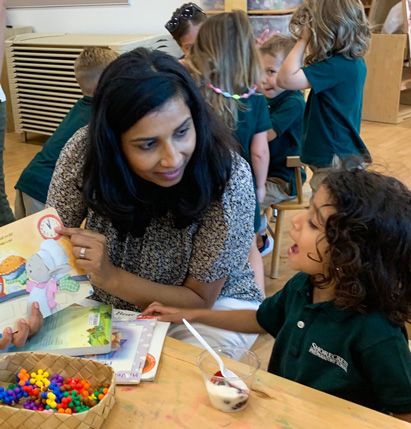

Observation on Parenting
Source/Author: Mike Murphy, Headmaster
September 20, 2019
This past week a parent asked me, “What lessons have you learned from parents? What works?”
My first thoughts were about parents who have dedicated themselves to parenting. They love their children and want to have fun with them, and they put the responsibility of parenting above fun and friendship. They provide basic needs the best they can. They instill values that are meaningful to them and to the future of our communities. They set high standards at home and away from home. They trust but verify behavior. They allow childhood to last as long as possible. They are not in a hurry for their children to grow up. They expose their children to work and responsibilities. They expose their children to a variety of people and experiences. They are patient and wait until the child has proven to be an independent adult before trying to develop adult relationships with their children.
On the contrary, adults who try to create environments for children that are free from responsibility, filled with overindulgence, void of consequence, protected from variety, and limited in expectations may see some short term joy but inevitably experience long-term disappointment.
There are hundreds of books and videos written and produced to provide guidance to parents. One can find an author to endorse even the most extreme forms of parenting. Want to spank, punish and deny basics? You can find information to support it. Want to let your child have the run of the house? You can find information to support that. Want to be proud and sane when your child is 21? Ignore those books!
Love is not present in an environment filled with screams and hitting. Love is not found in homes where parental guidance is void. Start with love, add a pound of expectations, and children will benefit.
For our youngest children, we know that physical contact and regular exposure to language, smiles and healthy nutrition lead to positive results. With school-aged children, we know that all those previous behaviors combined with age appropriate expectations at home and school as well as increased exposure to different people and environments matters. For our young teens, we must acknowledge that they are changing and that the desire for freedom is normal.
However we must also remember that they have not had the time to develop the values that will lead to healthy relationships and a positive self-image; we need to limit exposure to the adult world. Exposure to human sexuality, use of drugs and alcohol, language laced with vulgarities and other behaviors legal for adults should be discouraged in teenagers. The research on healthy teens and young adults is crystal clear. The longer a person delays sexual activity and the use of drugs and alcohol, the more likely the person will have positive attitudes and healthy lifestyles in their 20s and beyond.
Being present matters. Whether holding a three-week-old baby or having dinner with a 17-year-old senior, it is critical to be present. The young mother who is holding her baby while talking on the phone may be robbing the child and herself from a connection that is critical at an early age. Similarly, when we allow distractions to rob us from moments when lessons may be learned and shared with our pre-teens and teens, an opportunity is lost. We can’t know in advance which interaction will be the one our child remembers. It becomes important to have many of them and for those moments to be consistent in both timing and the messages we share.
How can something that is so rewarding be so fraught with challenge? Anything of value is worthy of hard work. That is especially true for parenting.
Cheers!
Mike
























